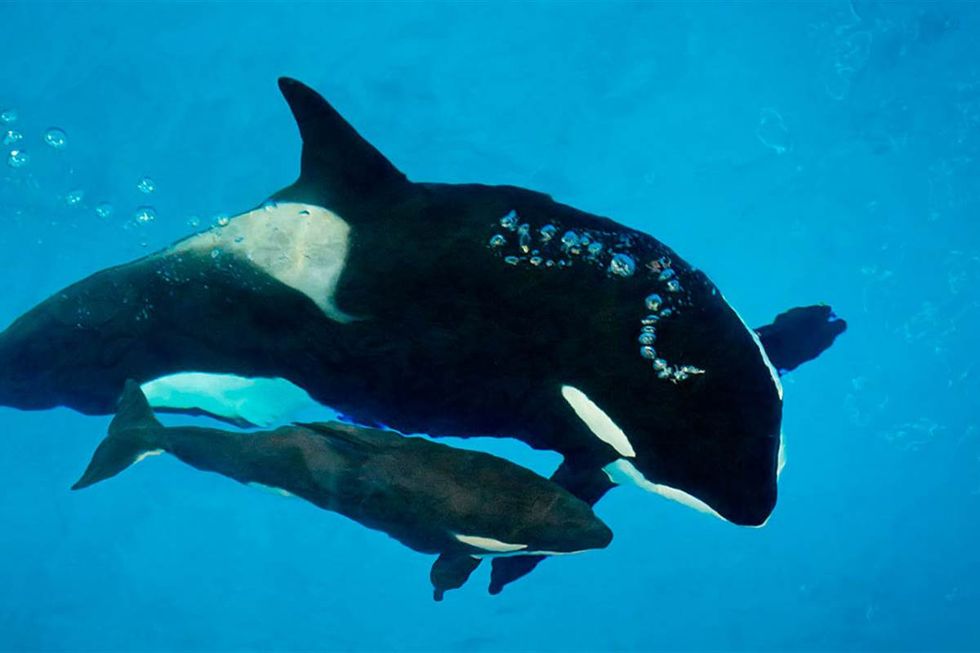For many, SeaWorld seems like a magical place where you can see breathtaking animals just inches away from your face. However, this 'magical place' has recently announced another death of one of their Orca Whales, Kyara, a three month old who was born into captivity. Kyara wasn't the first orca to pass away while at SeaWorld, however. A grand total of 62 orca whales have died while being held captive in SeaWorld, and not a single one from old age. Kyara passed away at 3 months old, while the average life expectancy for orca's is between 30-50 years, and some have even lived to reach 100. So let me ask you, how many more have to die before we save these innocent animals from being killed in captivity?
Orca whales, also known as killer whales, are actually not that dangerous. They prey on other wildlife like fish, seals, rays, and even sharks. While they are extremely powerful mammals, and capable of hunting prey much larger than humans, they pose no real threat. Even though they were given the name 'killer whale' these animals are actually quite social, and know what is off their menu to eat. There are very few documented cases of orca's actually attacking humans, and they only do so if they feel threatened. The instances where they have attacked their trainers at amusement parks like SeaWorld is left to the fact that they don't belong in captivity. Being held will make these whales feel threatened and emotionally unstable, and what else could be expected from an animal in distress? To them, they may feel like they are defending themselves instead of actually causing an attack.
Earlier this year, SeaWorld announced the death of one of their most famous whales, Tilikum. This 36 year old whale had faced several health complications including a bacterial lung infection. Tilikum was involved in three deaths since being captured when he was only two years old. Two were his trainers, Dawn Brancheau in 2010 and Keltie Byrne in 1991. The other guy, Daniel Dukes, was a trespasser and entered Tilikum's tank after operating hours. While Tilikum had been involved in three different fatal incidents, the whale was still performing at SeaWorld amusement parks, when he was clearly begging to get out. In February of this year, SeaWorld released a statement which had announced the death of Tilikum, and the reason why was inconclusive. The killer whale had then just became another whale lost to the cruelty this company inflicts on its animals.
Komogawa SeaWorld in Japan is responsible for 12 orca deaths since 1970. San Diego SeaWorld is responsible for 17 deaths since 1971. Orlando SeaWorld is responsible for 19 deaths since 1974. San Antonio SeaWorld is responsible for 14 deaths since 1990. While this company allows us to see these magnificent animals up close, at what cost do we realize that maybe we shouldn't take them out of their home just for our amusement? Help end the cycle for these Orcas, and stop supporting SeaWorld.
















